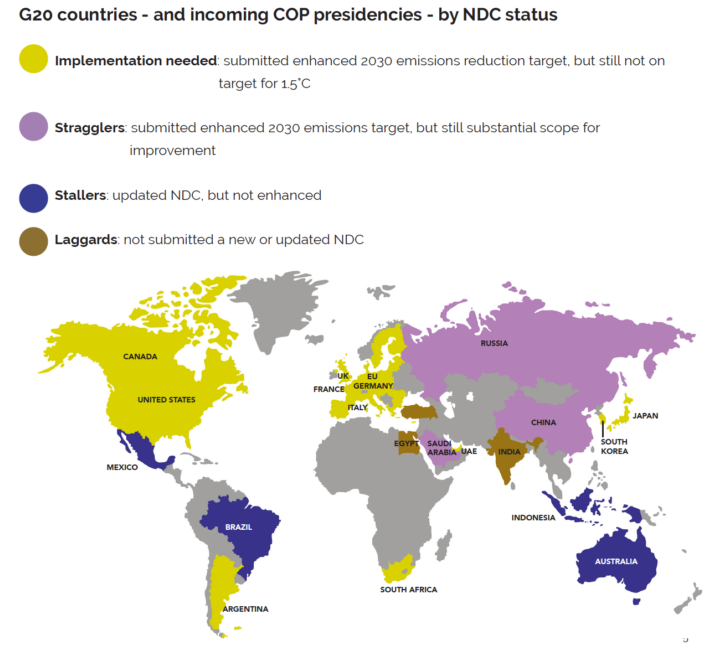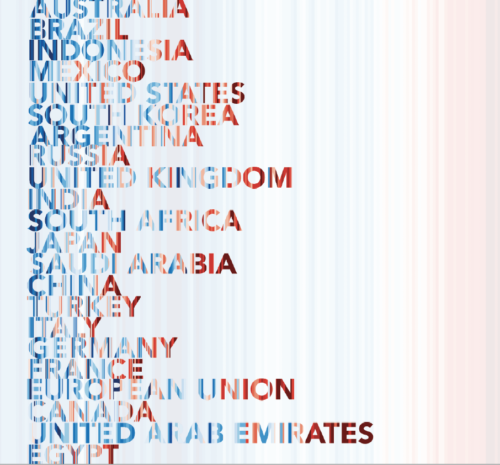Keeping 1.5°C alive
G20 nations are responsible for around 75% of the world’s greenhouse gas emissions. This is the emission gap to close this year.
Last updated:
At COP26, all countries agreed to revisit and strengthen their 2030 climate targets this year
Yet so far, none of the G20 have meaningfully done so; neither have the hosts of COP27, Egypt, and the Presidency of COP28 in 2023, the UAE.
What can world’s biggest economies do this year to keep 1.5°C alive?
This new report - written in partnership with E3G - covers key actions required from the G20 along with host countries of COP27 and COP28: Egypt and the United Arab Emirates respectively.
With less than 6 months to go until COP27, G20 nations - and COP 27 Presidents Egypt and United Arab Emirates - are failing to deliver renewed emission pledges, and get on to deliver pledges already made.
- Australia, Brazil, Indonesia and Mexico submitted 2030 climate targets that did nothing to limit their emissions. Enhancing their 2030 emissions targets to align with a 1.5°C pathway is an urgent priority for this group.
- Egypt, India and Turkey have not yet submitted any new or updated NDCs at all, and could put forward enhanced NDCs before COP27.
- China, Russia and Saudi Arabia submitted enhanced 2030 climate targets that were an improvement compared to their previous NDCs. But there is still considerable scope to improve their commitments.
- The remaining G20 countries and the UAE can still improve their 2030 climate targets this year, including through more ambitious targets for methane or key emitting sectors. Most notably, they are not on track to deliver their existing targets that were enhanced last year.

